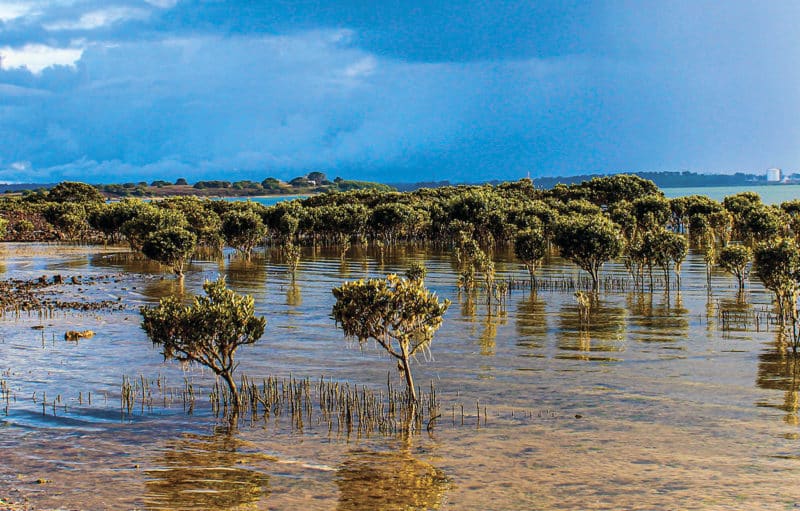PARK WATCH Article December 2024 |
You’re about to swallow a mouthful of plum pudding when Uncle Kevin says ‘I’ve had a gut full of national parks. The bush is more stuffed than this roast chook’.
Or maybe ‘When we camped as kids in the high country there weren’t any weeds’. Or if you’re really unlucky, ‘bloody woke inner-city greenies are trying to lock us out of our bush’.
While none of Uncle Kevin’s statements are factually correct, countering with facts is unlikely to win you the debate. Or change his mind.
Scientific reasoning relies on critical thinking, evidence and logic to test ideas and reach conclusions. But it’s human nature to filter logic through emotion to form opinions.
Studies show we accept information that supports our existing beliefs or values, and how we think things should be. We’re reluctant to give up, even if faced with solid proof contradicting it. Misinformation isn’t born from what is right and wrong but fuelled by resentment and indignation over how the world works. It’s why Kev and Karen accept ‘fake’ news – it’s a more comforting version of their truth.
Kev might be your uncle, but the values, culture and perspectives of his networks and algorithms influence and reinforce his social identity. Just hop online for an endless catalogue of people emotionally rejecting arguments despite an evidence-base meatier than a glazed ham.
So how do you talk to Kevin, Karen or anyone sharing misinformation about nature conservation? And how do you do it without spitting out your pud, spilling your beer or ruining your summer holiday? Here are a few of tips to keep your trifles light and your spirits festive.
1. Lead with empathy
Shame is a powerful emotion. Try and avoid calling out falsehoods by belittling the person. Empathy means finding common ground, looking for shared values. What can you agree on? You both love nature. You love spending time in it.
You: ‘Yeah Kev, it’s hard watching the places we love get wrecked. They’ve been hit hard for too long. Protected areas are one of the best ways to keep the stuff we love safe. And yeah, I agree, they need way more experienced rangers on the ground like they used to and way more funds to help look after them.’
2. Ask a lot of questions
People like being heard. Start with connection, not a correction. Tease it out, lean into curiosity and find out the source.
3. Avoid ‘but’
In response, make sure you avoid the word ‘but’. Cognitive research has shown that information that chases ‘but’ or ‘however’ is disregarded. Try ‘and’ instead.
4. Avoid negation
Contradiction sticks, according to cognitive studies. Don’t say ‘national parks do not cause bushfire’. The word ‘not’ gets detached in memory, leaving the listener mashing ‘national parks’ + ‘bushfire’ together.
You: ‘Weeds are a problem everywhere and national parks should have more resources for getting rid of them.’
Maybe you like a robust discussion, maybe you’re a peacekeeper or maybe these kinds of situations give you intolerable indigestion. Either way – our FAQ is here to help.
National parks: Frequently Asked Questions
- Read the latest full edition of Park Watch magazine
- Subscribe to keep up-to-date about this and other nature issues in Victoria
- Become a member to receive Park Watch magazine in print
